This week instead of looking at a particular disease I wanted to think a little bit about manly behaviours and how they were thought to interact with the manly body. Can we see any tension between the actions it was necessary display in order to achieve masculinity and the bodily state of manliness?
In early modern England men and women were advised on how to best live their lives through a genre of books called conduct literature. These printed works covered a range of topics including how to exercise, study and run a household. Many were written by parents and addressed to their children, offering advice on how to behave and conduct themselves to ensure that they developed into upstanding citizens.
One thing th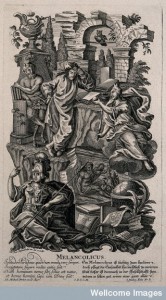 at many of these authors were worried about was how much time and energy should be devoted to scholarly undertakings and exercise. It was important to balance these two aspects of life to guarantee health. Scholarly activity was linked to a range of medical problems including melancholy, but it was also necessary to be well-educated in order to be able to run a household and business or hold a position of public office. A form of exercise that was praised as beneficial for men was horse riding. This was a moderate form of exercise that was linked to manliness and masculinity. Archibald Campbell, the Marquis of Argyll, explained to his son that,
at many of these authors were worried about was how much time and energy should be devoted to scholarly undertakings and exercise. It was important to balance these two aspects of life to guarantee health. Scholarly activity was linked to a range of medical problems including melancholy, but it was also necessary to be well-educated in order to be able to run a household and business or hold a position of public office. A form of exercise that was praised as beneficial for men was horse riding. This was a moderate form of exercise that was linked to manliness and masculinity. Archibald Campbell, the Marquis of Argyll, explained to his son that,
‘In the choice of your exercises, affect none that are overrobust and violent, that, instead of remitting, unbending the bow, will break it; but let them be moderate, and withal virile and masculine, such as is riding the great horse, [and] shooting at marks out of crosse-bows’. 1
The idea that horse riding was advantageous to the male body was repeated in other texts. One author described how riding would make young men’s bodies ‘healthful, lusty, and strong’. 2 It was not only the physical exertion that shaped men but the interaction with the horse as well: ‘Horsemanship is a very manly thing, and `tis no small matter to manage so strong and courageous a Creature as Horses are, so to curb and hold them in, or else so to put on, tame and govern them’. 3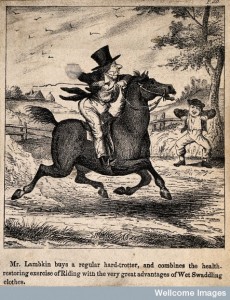
Despite the benefits of riding for making sure the male body was masculine espoused in these treatises, medical texts painted a very different picture of the way in which equestrian pursuits could affect manliness. In these works men were repeatedly told that riding a horse could damage a man’s reproductive organs and genitalia.
Most obviously, perhaps, medical writers warned men about crushing and bruising. John Hester wrote simply that ‘A Certaine man, riding on a trotting horse, had his stones swolne, as big as one fist’ – stones was an early modern term for testicles. 4 Other texts warned of more serious diseases that could be caused by riding a horse including gonorrhoea (a term they used to describe uncontrolled leakage of seminal fluid) and erectile dysfunction. 5 The jolting and repeated striking of the genitalia on the horse’s saddle was thus perceived to be very dangerous for a man’s health.
There was perhaps little need to worry about these conditions, medical men presented many remedies for such distempers that they were confident worked. A particularly appealing type remedy for swollen testicles can be seen repeated in several texts involved covering the testicles in concoctions containing cow dung:
‘Take Cow dung and dissolve it in Wine, and fry it with sweet butter, and it taketh away the swelling of the cods.’ 6 (cods was another term for the testicles) 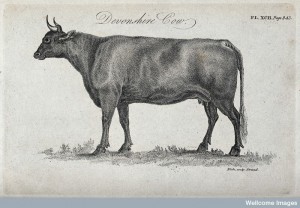
or
‘Take Cowes dung, and seethe it in milk, then make a plaster and lay it meetly hot upon the swelling.’ 7
So we can see again that the male body in early modern England was in a precarious position when it came to asserting bodily manhood and masculinity. Although riding could shape the body to be manly and strong, it could also potentially damage a man’s fundamental role in marriage, the production of children, and so prevent him from being an adequate head of household. The project that I am currently working on will pursue contradictions like this further, to assess how important the male body, and particularly male virility, was to overall understandings of masculinity and male health.
______
1. Archibald Campbell, Instructions to a son by Archibald, late Marquis of Argyle ; written in the time of his confinement (London, 1661), pp. 104-5
2. J. Gailhard, The Compleat Gentleman, or, Directions for the Education of Youth as to their Breeding at home and Travelling Abroad … (London, 1678), pp. 50.
3. J. Gailhard, The Compleat Gentleman, p. 51.
4. John Hester, The pearle of Practice, or Practisers pearle, for phisicke and chirurgie … (London, 1594), p. 23.
5. Anonymous, Etmullerus Abridg’d: Or, A Compleat System of the Theory and Practice of Physic. Being a Descripting of All Diseases Incident to Men, Women and Children … (London, 1699) , pp. 570, 573.
6. Anonymous, The Poore-mans Plaster-box. Furnished with diverse Excellent Remedies for sudden Mischances, and usuall infirmities, which happen to Men, Women, and Children in this Age. (London, 1634) , p. 29.
7. Thomas Collins, Choice and Rare Experiments in Physick and Chirurgery. Or A Discovery of most approved Medicines for the curing of most diseases incident to the body of Men, Women and of Children, together with an Antidotary of Experiments never before Published (London, 1658) , p. 166.
© Copyright Jennifer Evans, all rights reserved.
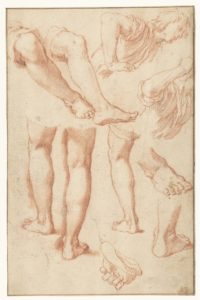
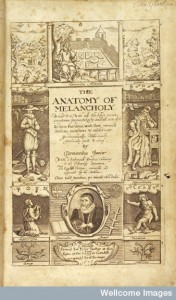
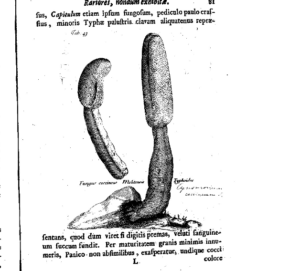
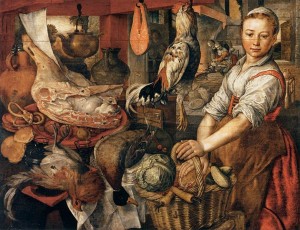
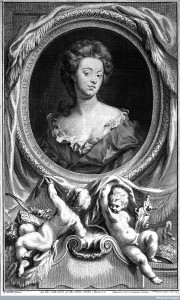
Great post, Jen. There’s an amusing take on fertility treatments that may play on the contraditory position of horse riding in Middleton’s A Chaste Maid in Cheapside, where a couple ( Kix, meaning something like hollow stem) are taking advice from the father-of-many, Touchwood. A medicinal ‘water’ is recommended for man and wife, while the husband is sent off for a vigorous ride on a horse and the wife is sent to lie down. Of course the joke here is that the medicinal ‘water’ for the wife is Touchwood’s seed, and the horse ride is a ploy to remove the husband. So a sly giggle at Kix, whose horse ride is intended to up his masculine status but who is turned cuckold instead.
Vicky
That is very interesting indeed – one day we really will have to write an article about all of these snippets of fertility games in early modern plays